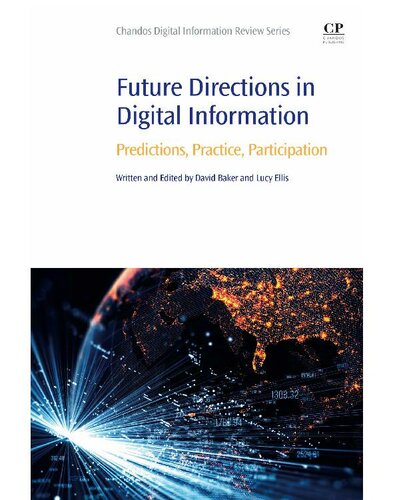

Most ebook files are in PDF format, so you can easily read them using various software such as Foxit Reader or directly on the Google Chrome browser.
Some ebook files are released by publishers in other formats such as .awz, .mobi, .epub, .fb2, etc. You may need to install specific software to read these formats on mobile/PC, such as Calibre.
Please read the tutorial at this link: https://ebookbell.com/faq
We offer FREE conversion to the popular formats you request; however, this may take some time. Therefore, right after payment, please email us, and we will try to provide the service as quickly as possible.
For some exceptional file formats or broken links (if any), please refrain from opening any disputes. Instead, email us first, and we will try to assist within a maximum of 6 hours.
EbookBell Team

4.0
46 reviewsThe last decade has seen significant global changes that have impacted the library, information, and learning services and sciences. There is now a mood to find pragmatic information solutions to pressing global challenges. Future Directions in Digital Information presents the latest ideas and approaches to digital information from across the globe, portraying a sense of transition from old to new. This title is a comprehensive, international take on key themes, advances, and trends in digital information, including the impact of developing technologies. The latest volume in the ‘Chandos Digital Information Review Series’, this book will help practitioners and thinkers looking to keep pace with, and excel among, the digital choices and pathways on offer, to develop new systems and models, and gain information on trends in the educational and industry contexts that make up the information sphere. A group of international contributors has been assembled to give their view on how information professionals and scientists are creating the future along five distinct themes: Strategy and Design; Who are the Users?; Where Formal meets Informal; Applications and Delivery; and finally, New Paradigms. The multinational perspectives contained in this volume acquaint readers with problems, approaches, and achievements in digital information from around the world, with equity of information access emerging as a key challenge.